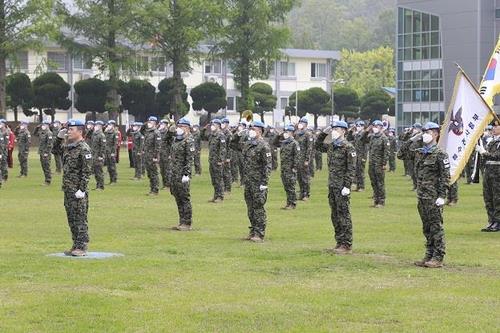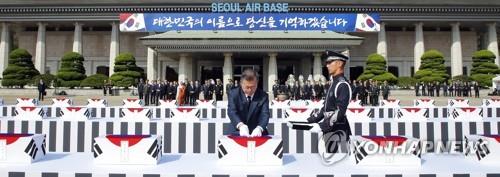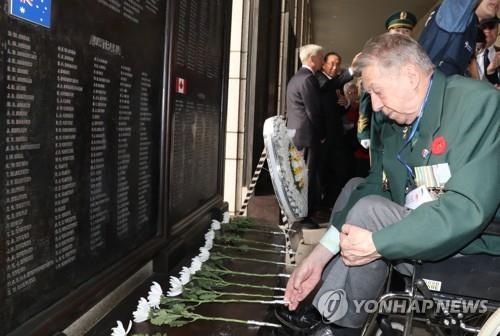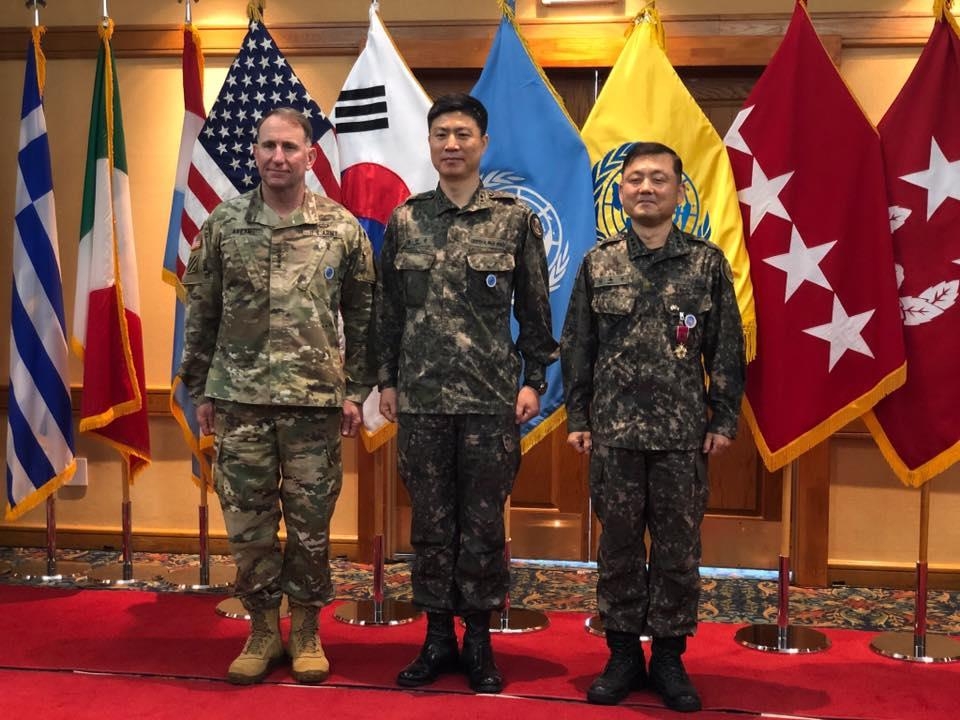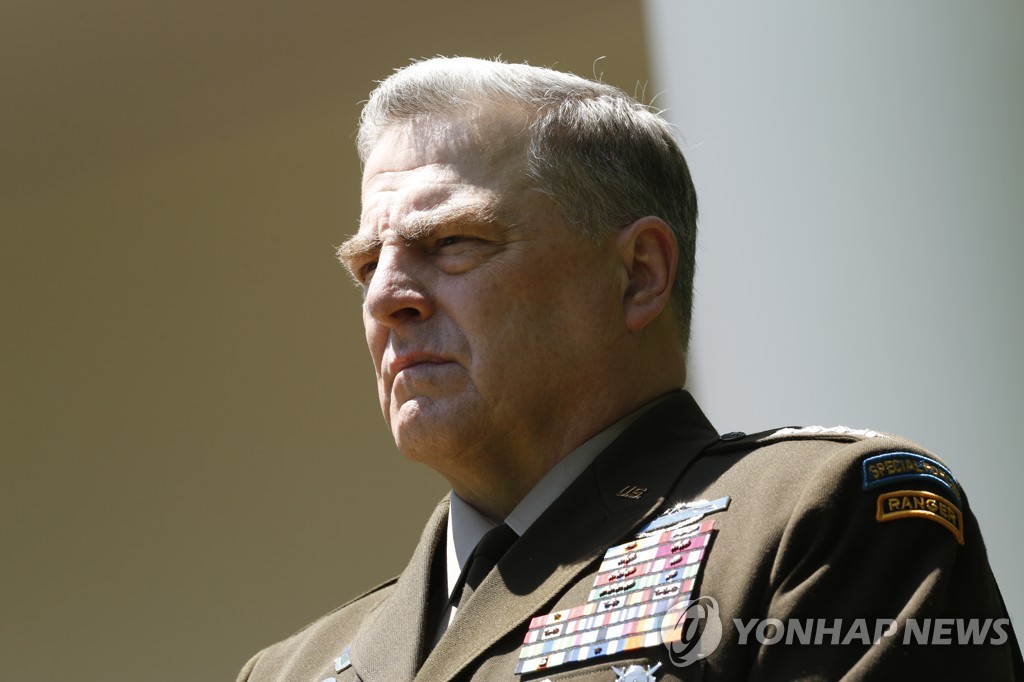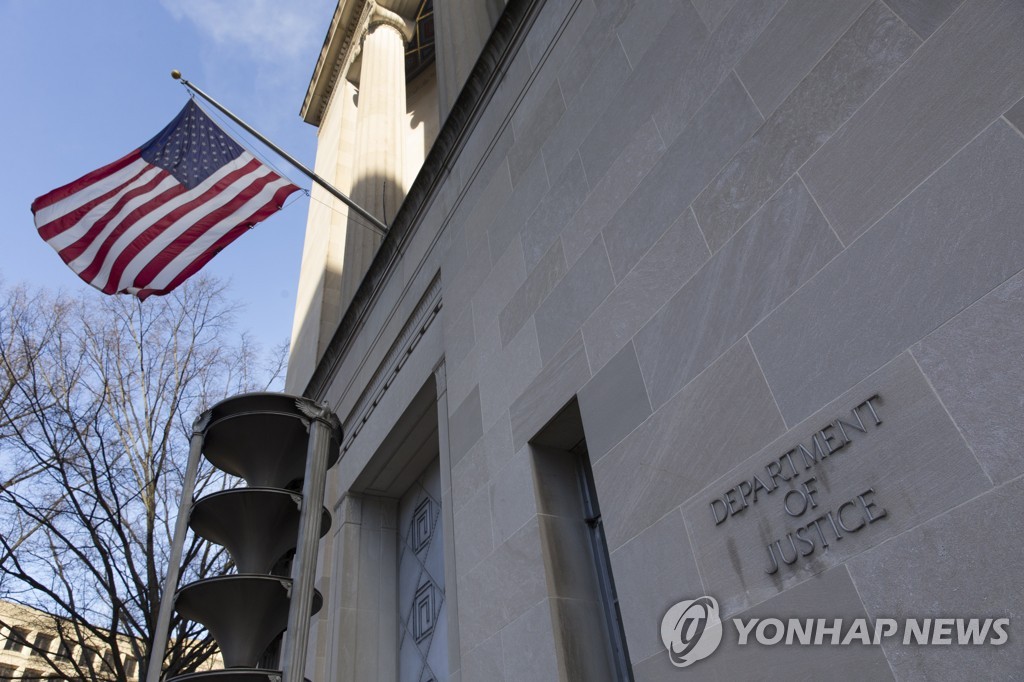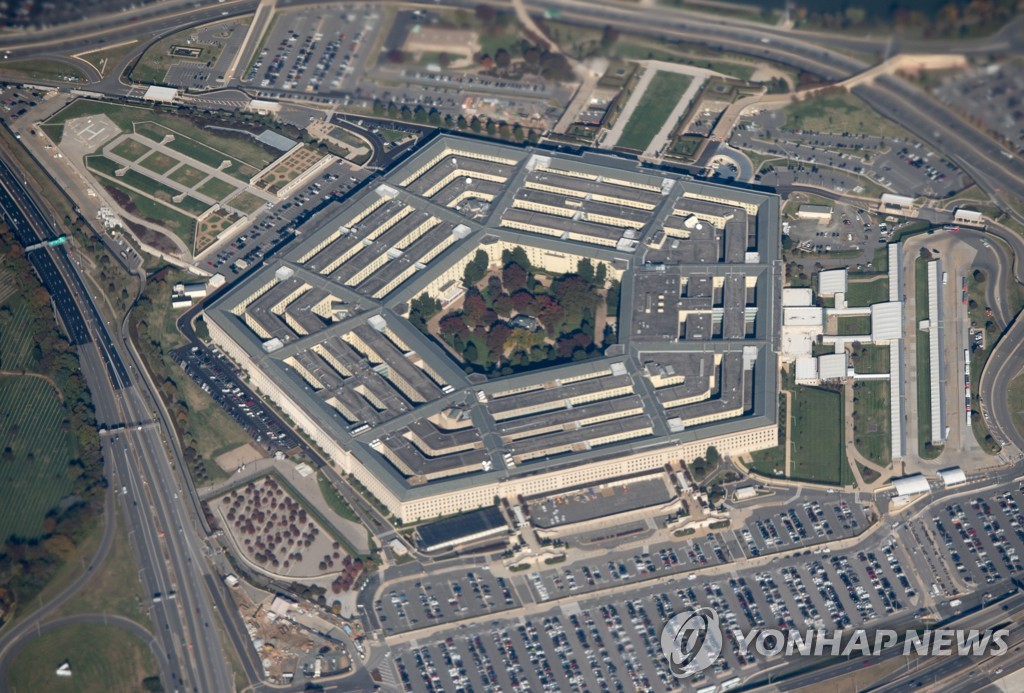By Yonhap
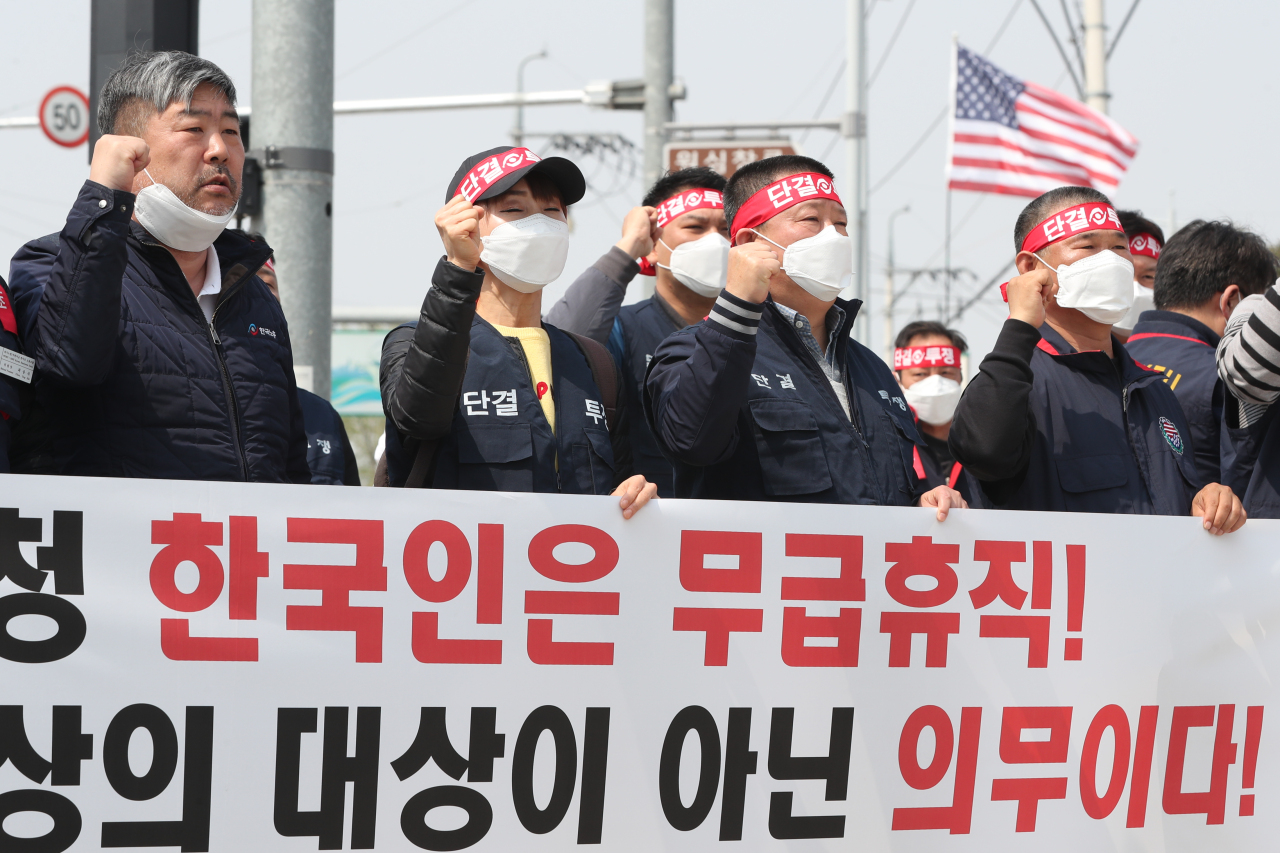 |
|
(Yonhap)
|
The decision will end the furloughs that the US military has given to more than 4,000 South Korean employees since April 1, citing the lack of a new Special Measures Agreement (SMA) that stipulates how much Seoul would pay for the upkeep of the 28,500-strong USFK, including wages of the Korean employees.
“The Department of Defense has accepted the Republic of Korea’s (ROK) proposal to fund the labor costs for all US Forces Korea (USFK) Korean National (KN) employees through the end of 2020,” the US Department of Defense said in a release. South Korea will provide more than $200 million for the entire Korean workforce, it said.
“USFK expects all KN employees to return to work no later than mid-June,” it added.
All the furloughed workers will return to work June 15, as around two weeks is needed for preparations given the current COVID-19 situation, according to USFK officials.
The defense cost-sharing negotiations have been deadlocked after US President Donald Trump rejected Seoul’s offer as insufficient. Officials said Washington has asked Seoul to pay $1.3 billion per year, a nearly 50 percent increase from last year, while Seoul says its best offer stands at a 13 percent increase.
After the previous SMA expired at the end of last year, Seoul proposed in February that the two sides first settle the issue of salaries for the USFK workers and then work toward an overall cost-sharing agreement.
Washington objected to the idea, claiming it would “greatly detract from expeditiously concluding a mutually acceptable and comprehensive SMA.”
In April, South Korea notified the US of its intention to pay the workers first and then deduct the amount from whatever financial contribution it agrees to make under a new SMA.
“Since the last SMA lapsed on 31 December 2019, the United States has unilaterally shouldered the burden for all costs associated with US Forces in Korea,” the Pentagon said, citing labor costs, logistics contracts, and construction project design and oversight costs.
“This decision enables a more equitable sharing of the KN employee labor burden by the ROK and the US. More importantly, it sustains the Alliance’s number one priority — our combined defense posture,” it added.
Confirming Washington’s acceptance of the proposal, a South Korean foreign ministry official said that the US acceded to Seoul’s proposal to clinch a separate arrangement on the wage issue, and the two sides are working on details.
The envisioned arrangement is expected to be subject to parliamentary approval.
South Korea’s defense ministry welcomed the US decision to end the furloughs.
“South Korea and the US will strive to reach a defense cost-sharing agreement at an early date,” the ministry said in a release.
The cost-sharing deal will likely be among the key agenda items when South Korean Defense Minister Jeong Kyeong-doo holds video talks with his US counterpart Mark Esper sometime this month. The two sides are working to fix the date for the planned call, officials said.
“On behalf of US Forces Korea, I enthusiastically support the agreement,” USFK Commander Gen. Robert Abrams said in a statement.
“We are thrilled to welcome back our furloughed employees and end this strenuous period for them.”
The agreement is a result of continuous dialogue between South Korea and the U.S. as well as among US military entities to end the partial furlough, Abrams said, adding that they all understood the impacts of the unpaid leave on their combined defense posture and the alliance.
“Today’s announcement presents a short term solution for labor cost sharing, yet it still highlights the need for an overall Special Measures Agreement for the long term,” the commander stated.
The labor union of the USFK Korean workers expressed gratitude to the governments of the two countries while calling for revising related measures to prevent a recurrence.
“The defense cost-sharing deal is yet to be reached. Specific details to prevent this situation from happening again should be stipulated in a new deal,” the labor union said in a release.
The Pentagon still maintained that South Korea should increase its contributions toward shared defense costs.
“We strongly encourage our Ally to reach a fair agreement as quickly as possible,” the statement read. “The United States has shown considerable flexibility in their approach to the SMA negotiations and requests that the ROK does the same.”
It added that without a new SMA critical defense infrastructure projects will remain suspended, the US will continue to pay completely for all logistics support contracts, and “burden sharing will remain out of balance for an Alliance that values and desires parity.”
“USFK’s mid- and long-term force readiness remains at risk,” it said. (Yonhap)
Article: http://www.koreaherald.com/view.php?ud=20200603000113



